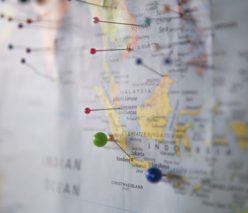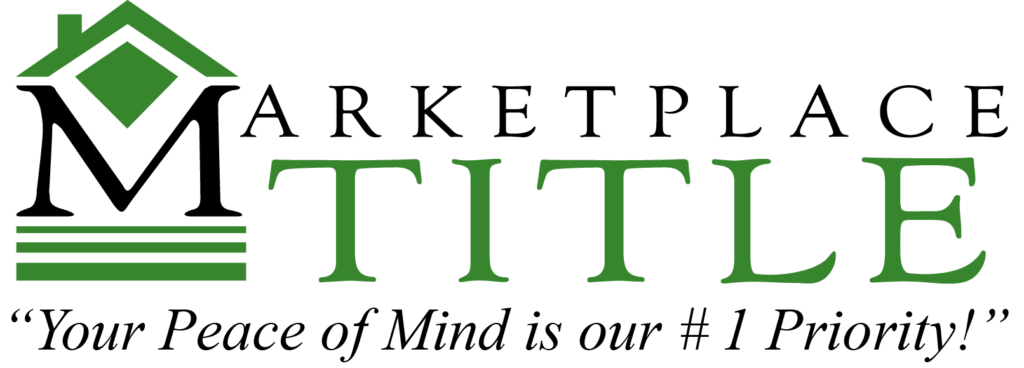 When sellers or buyers meet with the closing agent to sign their closing documents, it is easy to take for granted the formalities that are required for properly executing a deed or mortgage and other closing documents. Even if the signer is in another state, usually they have easy access to a notary public at their bank or a local business, and with careful instruction from the closing agent to the notary, the formalities are easy for the signer to overlook. When the signer is in a foreign country, however, early and careful planning is needed to ensure the required services and facilities are available so that closing will not be delayed.
When sellers or buyers meet with the closing agent to sign their closing documents, it is easy to take for granted the formalities that are required for properly executing a deed or mortgage and other closing documents. Even if the signer is in another state, usually they have easy access to a notary public at their bank or a local business, and with careful instruction from the closing agent to the notary, the formalities are easy for the signer to overlook. When the signer is in a foreign country, however, early and careful planning is needed to ensure the required services and facilities are available so that closing will not be delayed.
Under Florida law, real estate documents may be authenticated in a foreign country by:
- a commissioner of deeds appointed by the Governor of this state to act in such country;
- a notary public of such foreign country or a civil-law notary of Florida or of such foreign country who has an official seal;
- a diplomatic or consular officer of the United States appointed to reside in such country; or
- a military or naval officer authorized by the Laws or Articles of War of the United States to perform the duties of notary public.
Florida Commissioners of Deeds are limited to authenticating documents related to timeshare interests. Moreover, they would typically be employed by companies selling Florida timeshare interests, and likely not offer services to the general public. Similarly, services offered by military or naval officers are probably limited to military personnel or their families, and possibly civilian government contractors. The Florida civil-law notary is not a practical solution to this issue, because you are not likely to find a Florida civil-law notary near a foreign location where documents will be signed. Out of 138 currently appointed Florida civil-law notaries, 129 are located in Florida, and only two are in foreign countries.
The available options for most transactions are foreign notaries, or U.S. diplomats.
In some countries, such as Canada, notary services are readily available and offered to the general public. Many foreign notaries, similar to notaries in the U.S., are legally authorized and appointed by the foreign government authorities to provide document authentication services. The scope of their services varies. In the United Kingdom, notaries are primarily concerned with authentication of documents, but also have specialized education and are authorized to provide certain general legal services. In many hispanic countries, “notarios” are actually lawyers; they are authorized to authenticate documents, but it is not necessarily their primary service. In many other countries, notaries are not available at all.
In many cases, the best option is to sign at a U.S. Embassy or consulate. This requires early planning, as the embassies and consulates generally require an appointment for this service, and often are booked several weeks out. The locations can usually be found with a web search, and the websites usually have further information about their services and how to make an appointment. Their predictability makes U.S. diplomatic facilities the preferred option, despite the need for early planning.
Under certain conditions, the signer may be able to use remote online notarization (RON), which allows the signer to virtually “appear” before a notary in the U.S. and electronically sign their closing documents from anywhere in the world. (For more details on RON, see “eClosings: The Basics”, May 8, 2019.) RON is by far the most efficient and convenient option for many signers in foreign countries. However, it should not be relied upon without having a back-up option in place, in case the signer is unable to complete the RON process for whatever reason.
We recommend that any seller or buyer planning to sign closing documents in a foreign country confirm their signing options immediately after signing the contract. If we cannot confirm that a notary will be readily available, we recommend booking an appointment with the closest U.S. embassy or consulate right away. The appointment should be timed enough in advance of the closing date that the original documents can be delivered to our office no later than the closing date. Even when it appears the signer qualifies and prefers to use RON, the appointment should be kept as a backup option until the closing agent confirms the RON signing was successful.
Marketplace Title is ready to work with sellers or buyers that need to sign their closing documents in a foreign country. Please make sure our staff is aware of the need as early as possible, and we will gladly assist with identifying the best signing option to minimize hassles and avoid frustration and delay.

